What Is a Truly Sustainable Business?
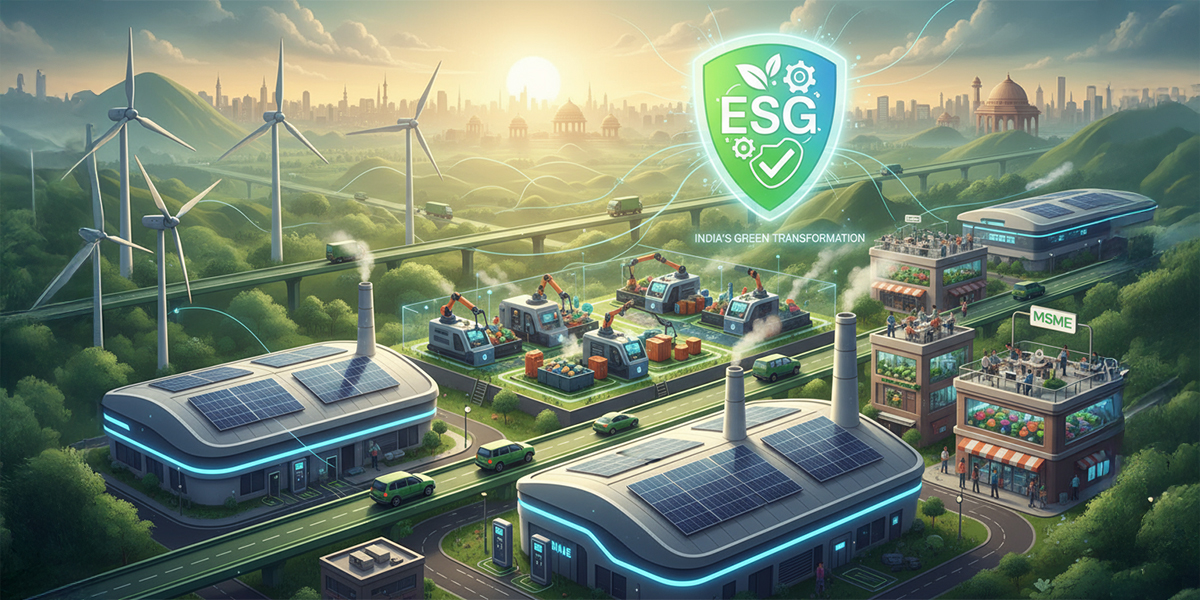
Every “Green” Label Isn’t Sustainability – So, What Is a Truly Sustainable Business?
When companies talk about being “green,” it’s easy to applaud and move on. But sustainability isn’t a slogan or a single checkbox – it’s a measurable, long-term commitment that changes how a business sources, makes, sells and returns products. India’s green transition is accelerating – from ambitious renewable targets to rising EV adoption – but to turn momentum into meaningful impact we must be able to tell the genuine articles from good PR.
Who Qualifies as a Sustainable Business?
A business deserves to be called sustainable when its strategies and operations meet clear, verifiable standards across environmental, social and governance (ESG) dimensions. Below are practical criteria that define a truly sustainable enterprise:
- Clear, Measurable Environmental Targets
• Public targets for energy, emissions or water use (e.g., % renewable electricity, absolute CO₂ reduction).
• Regular disclosure of progress (annual sustainability/ESG report or dashboard). - Material Use of Renewables & Energy Efficiency
• A demonstrable share of energy from renewables or investment in on-site generation/renewable procurement.
India’s national push aims for large-scale renewable capacity – a backbone for business decarbonization.
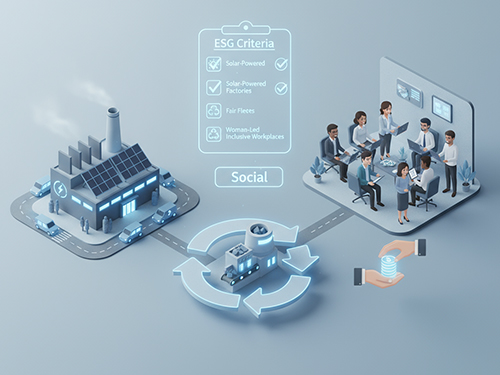
3. Product & Process Circularity
• Design for reuse, repair, recycling or take-back.
• Use of recycled feedstock and reduced virgin material intensity.
Circular models turn waste into value – a fast-growing business opportunity in India’s textile and plastics sectors.
4. Responsible Mobility & Supply-chain Transition
• Adoption of electrified fleets, shared logistics or low-carbon transport for inbound/outbound movement.
Government schemes and demand incentives are actively supporting EV deployment across public and shared transport.
5. Quantified Social Impact & Inclusive Practices
• Fair wages, safe workplaces, gender inclusion, and supplier uplift in the value chain.
• Measured community or livelihood impacts for rural and micro-enterprise linkages.
6. Third-party Verification & Standards
• Certification or independent verification (B Corp, ISO 14001, GRI reporting, or recognized domestic schemes).
• Traceability for critical inputs (e.g., recycled plastics, organic cotton).
7. Financial Viability with Long-term Risk Management
• Profitability or clear path to it while internalizing environmental costs and managing climate risks (physical and transition).
• Integration of climate risk and regulatory scenarios into business planning.
Why This Distinction Matters?

Calling every eco-friendly initiative “sustainable” blurs the line between token gestures and transformational change. Here’s why a strict definition matters – for business, customers and the planet:
- Market Access & Premiums: Global buyers increasingly demand verified sustainability across supply chains. Firms that can prove circular practices or low-carbon footprints unlock premium markets and long-term contracts.
- Investor Preference & Cheaper Capital: Investors, especially institutional and impact funds, prefer measurable ESG performance – this can lower financing costs and increase investor confidence.
- Resilience & Cost Savings: Energy efficiency, reduced waste and electrified fleets often yield operational savings (lower fuel and input costs), improving margins.
- Regulatory Alignment: As India scales renewables and shapes climate policy, businesses that proactively decarbonize are better positioned to comply with future regulation. India’s renewable goals and recent progress underline that policy tailwinds are real.
- Real Climate Impact: Only verifiable, systemic changes (not isolated green acts) actually reduce emissions and resource stress at scale.
Real-World Signals to Watch (and Examples)
- Renewables adoption: Companies signing power purchase agreements (PPAs) or installing rooftop solar are signal leaders. India’s rapid renewable additions and targets create opportunities for businesses to switch to clean power.
- EV transition in operations: Businesses switching delivery fleets or employee transport to EVs demonstrate supply-chain decarbonisation – and national schemes are supporting fleet electrification.
- Circular pioneers: Startups turning plastic, textile waste or industrial by-products into usable inputs (recycled resin, upcycled fabrics, or pollution-to-product innovations) show scalable circularity in action. These models also open export and brand opportunities.
- MSME engagement: Small manufacturers adopting energy-efficient tech or participating in EPR (extended producer responsibility) ecosystems are early multipliers of impact – lifting whole clusters toward green compliance.
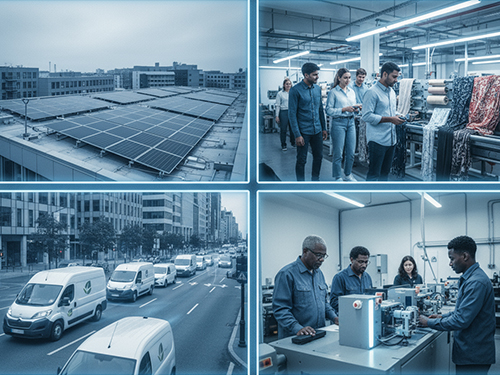
How Businesses Can Move from “Green” to Genuine Sustainability – A Simple Roadmap?
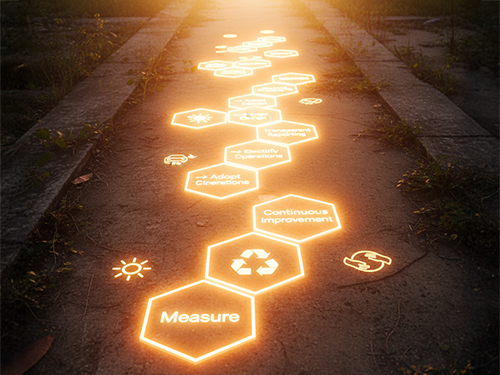
- Measure first: establish energy, water and emissions baselines.
- Set public, time-bound targets: % renewables, emissions reduction, waste diversion.
- Adopt circular product design: reduce material intensity; plan for end-of-life.
- Electrify transport & operations where feasible: leverage incentives and shared infrastructure.
- Report transparently: publish an annual ESG update and seek third-party assurance.
- Engage suppliers and MSMEs: enable upstream partners with training and pooled investments.
- Monitor & iterate treat sustainability as continuous improvement, not a one-time campaign.
Conclusion
Sustainability is not a marketing label – it is a business transformation. In India’s fast-changing economy, genuine green businesses will be the ones that combine measurable environmental action with social inclusion and financial resilience. The policy momentum – from ambitious renewable goals to EV incentives and circular-economy roadmaps – offers a rare window of opportunity. The next decade belongs to enterprises that can demonstrate real carbon reduction, circularity and inclusive value creation – not just pretty green claims.



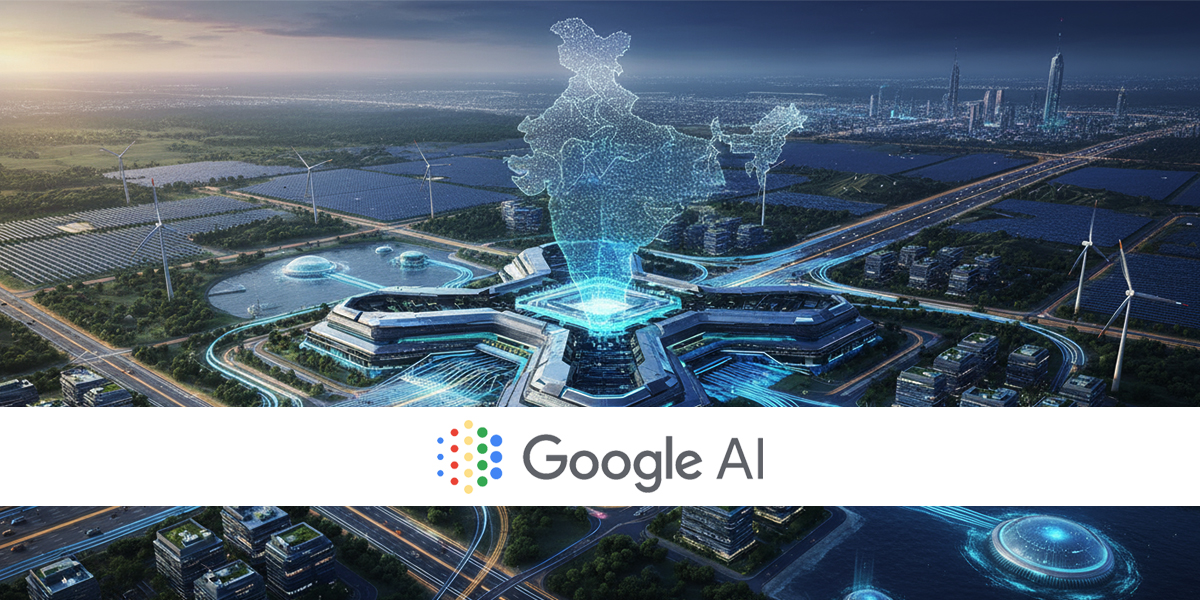
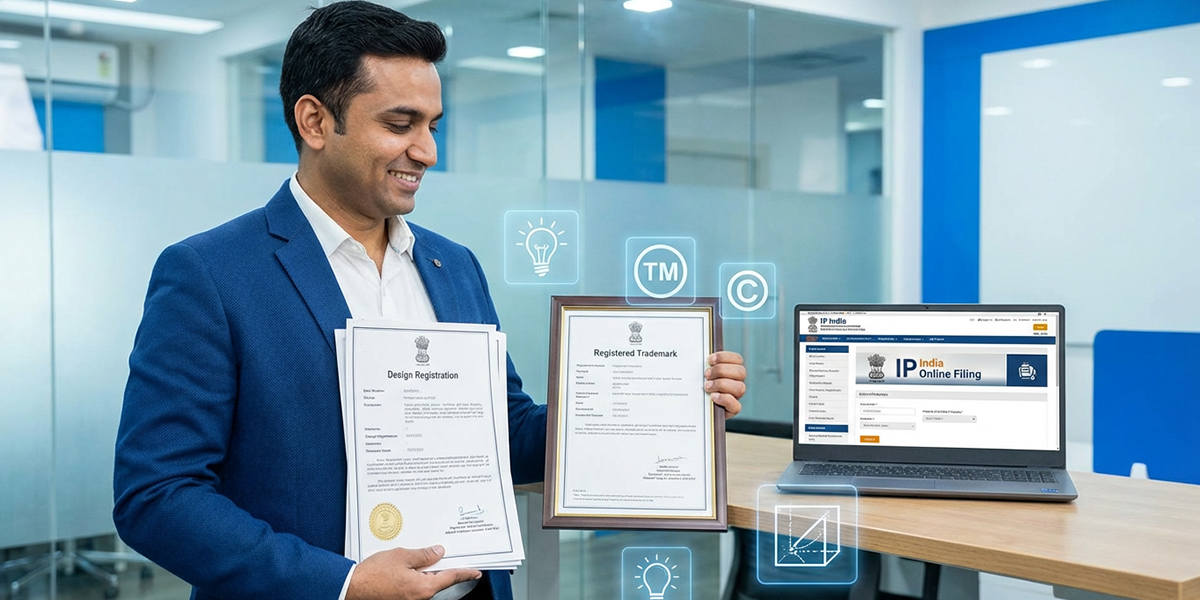
Leave a Reply